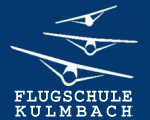University Of Minnesota Reciprocity Agreements
You will receive a letter of approval from your home country if your reciprocity application has been approved. The university will be notified by your home state when your reciprocity agreement has been approved. However, if your billing does not reflect your reciprocity courses, after you have brought your letter of approval to a one-stop student service centre. Reciprocity of tuition fees is not automatic. You must apply for reciprocity through the university office in your state or province. Information and application forms can be obtained from the mutual office in your home country below: Annual reports on reciprocity of tuition fees provide further general information about the reciprocity program. Students who wish to apply for reciprocity of courses can learn more here. The reciprocity agreement allows students to pursue international post-secondary education at affordable national prices. Manitoba`s Advanced Learning Division describes the agreement at the end of its interprovincial and international training website. Minnesota has reciprocal agreements with Wisconsin, North Dakota and South Dakota. It also has an agreement with the Canadian province of Manitoba and a limited agreement with Iowa Lakes Community College in northwestern Iowa.
If you are a student from North Dakota, South Dakota or Wisconsin, you will be charged the tuition rate for residents. Some exceptions apply if you are a graduate or professional student; For more information, consult the mutualist documents available during admissions. Manitoba students interested in attending Minnesota universities and colleges participating in the Reciprocity for Tuition Program will find information about the reciprocity agreement on the Minnesota Office of Higher Education Manitoba reciprocity website. The Minnesota Higher Education Services Office provides general information about reciprocity agreements on its Reduced Out-Of State Tuition Tuition Options website. The Province of Manitoba has entered into a reciprocal agreement with the State of Minnesota (Usa). The agreement ensures that Manitobans studying in Minnesota pay the same tuition fees as Minnesota students at participating post-secondary institutions. Minnesotans pay the same tuition fees as Manitoba students if they choose to study in Manitoba. Minnesota has reciprocal agreements underway with Wisconsin, North Dakota, South Dakota, an Iowa institution and the Canadian province of Manitoba.
The agreements reduce tuition fees for non-residents and remove barriers to admission for non-residents in each state who attend a public institution in the other state. See The Minnesota Statute Governing Program. Premium amount: This award provides students with reduced non-government tuition fees. The amount of the reduction varies from institution to institution. Typically, students attending participating Wisconsin schools pay the increase in tuition fees to be paid by Wisconsin College attended or by tuition fees collected at a similar school in Minnesota. Law graduates or students who attend a participating school in the other state (Minnesota or Wisconsin) pay whichever is higher. Detailed information on tuition fees is available online under www.ohe.state.mn.us/mPg.cfm?PageID=100. Mutuals are automatically renewed each year, provided that the student continues to attend a mutual college or university and has obtained credits from the same school in the last 12 months. The total amount of this scholarship is $7,000. Minnesota has made agreements with neighboring countries to give Minnesotans lower tuition fees for attendance at public colleges and universities in those states.
This is called reciprocity. As a general rule, registration fees and tuition fees for non-residents are reduced (or eliminated) if you are a mutual student. After your first year, provided you have earned credits on campus, your mutual automatically lengthens. Delays in your reciprocity authorization do not exempt you from additional billing fees.. . . .

